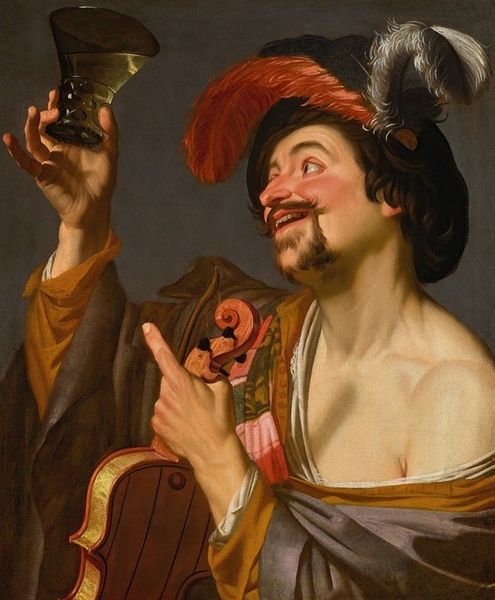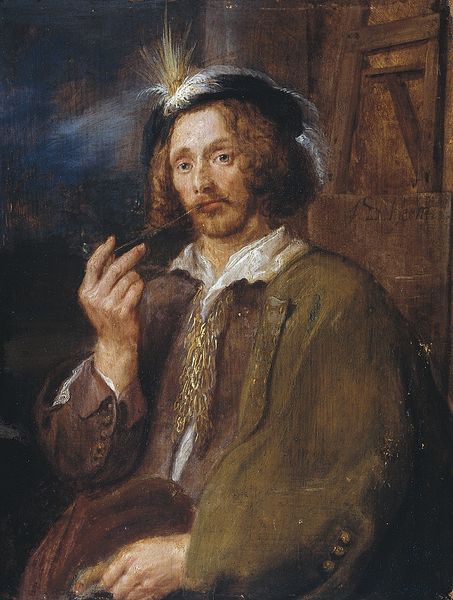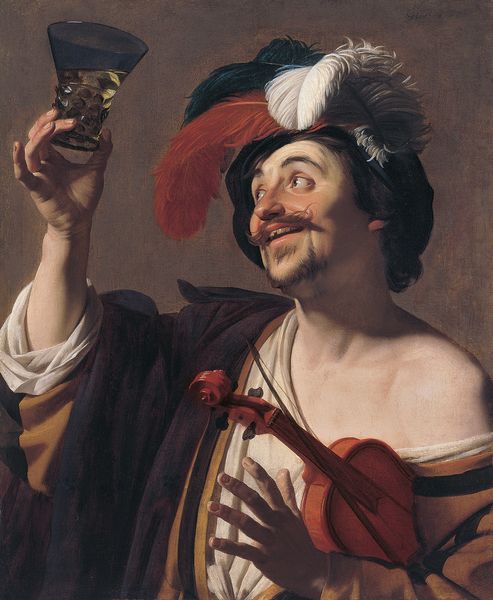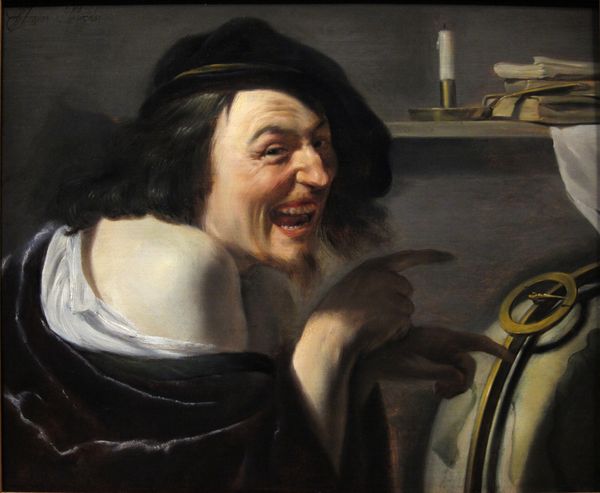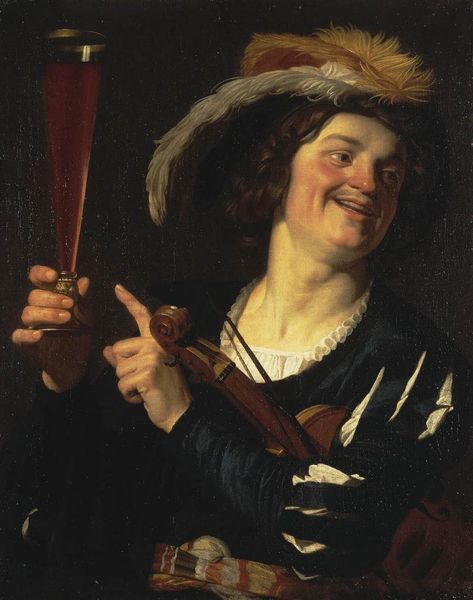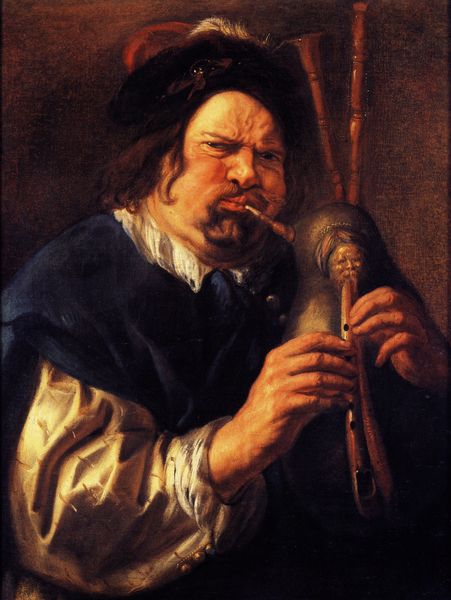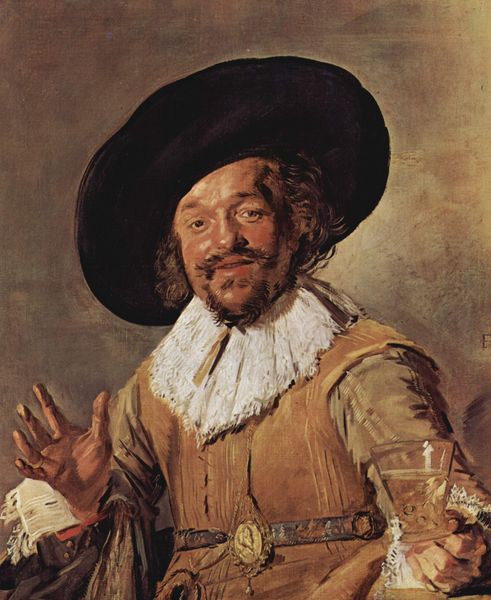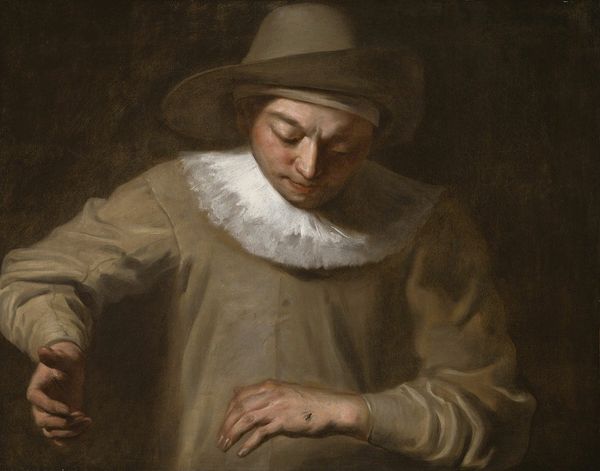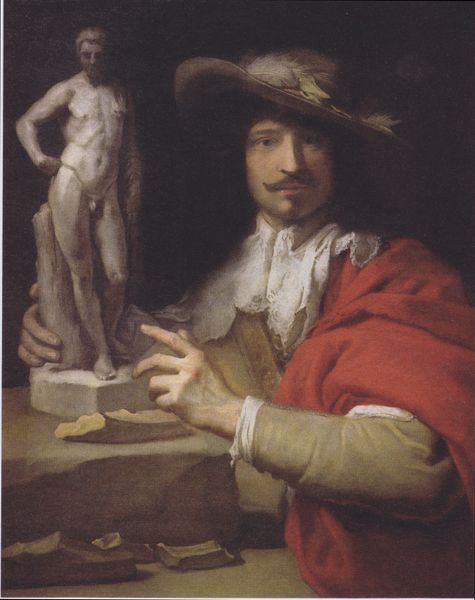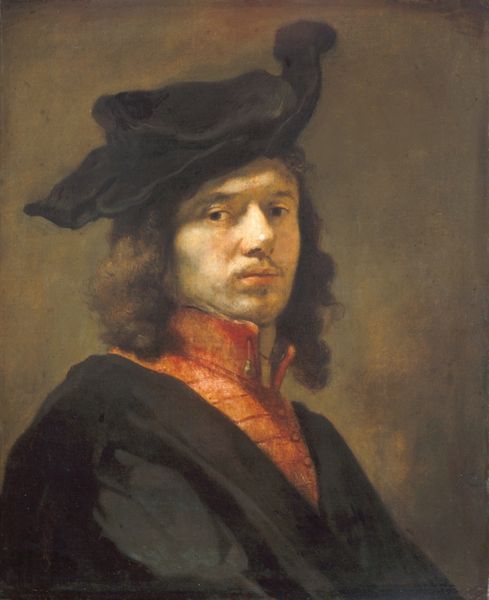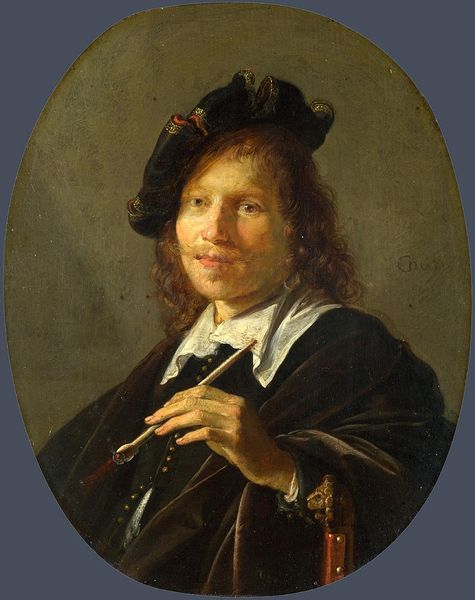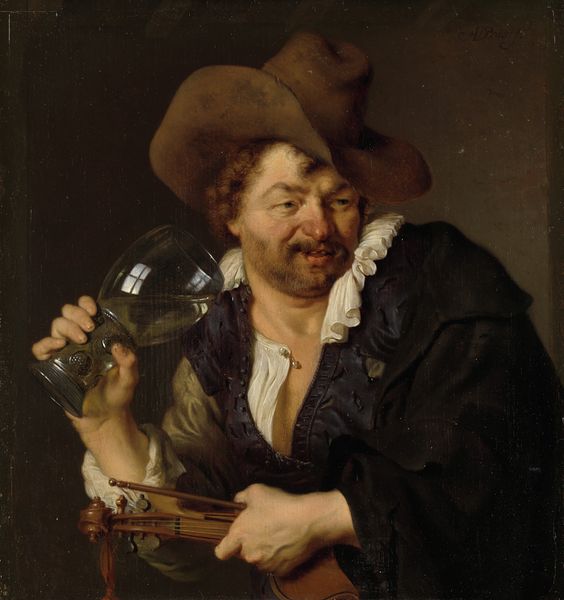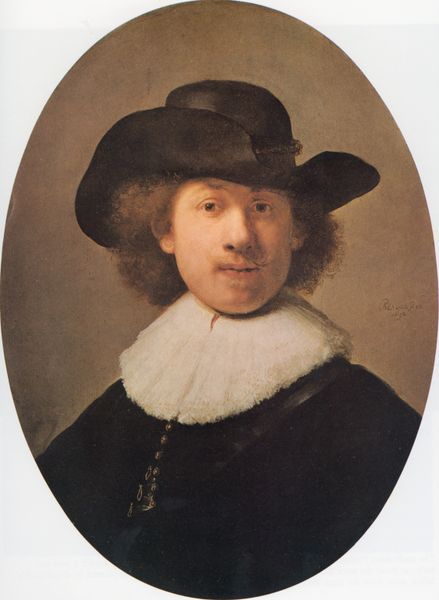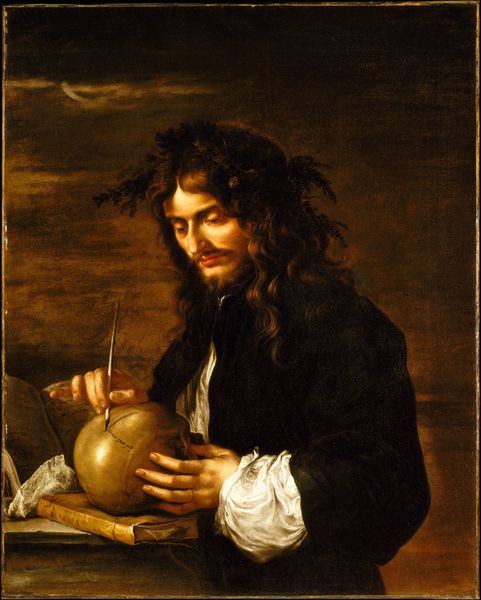
painting, oil-paint
#
portrait
#
self-portrait
#
baroque
#
painting
#
oil-paint
#
figuration
#
flemish
Dimensions: 56 x 46 cm
Copyright: Public domain
Editor: This is Jacob Jordaens' "Self-Portrait," an oil painting of undetermined date. He's looking right at us, holding a paper. What can we glean from it? Curator: Immediately, the luscious application of oil paint is apparent. Think about the workshops of the period. Jordaens, like Rubens, was heading up a large workshop, effectively a factory of art production. This self-portrait offers us an insight into the artistic labor and the social structures of artistic creation in the Flemish Baroque. Editor: So you're saying the materials themselves, like oil paint, and how they're used tell us something about his work environment? Curator: Precisely. Consider the sourcing of pigments, the grinding, the mixing. This was all labor, impacting the cost and the accessibility of art. Who commissioned these works? Who was buying them? Jordaens wasn't just creating an image; he was participating in a complex system of material production and consumption. The luxuriousness isn’t accidental; it’s tied to economics. Notice the details of his clothing—these were commodities, not just adornment. How do they tell a story of wealth? Editor: I never really thought about clothing as a commodity within a painting, but I see what you're saying. This really changes my perception of the painting from merely an aesthetic piece. It makes me want to analyze not only how, but from what he made this painting, and why. Curator: Yes, viewing this self-portrait through the lens of materialism provides a new dimension of appreciation, doesn’t it?
Comments
No comments
Be the first to comment and join the conversation on the ultimate creative platform.
